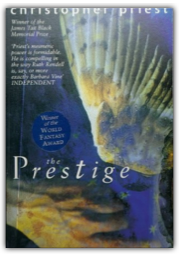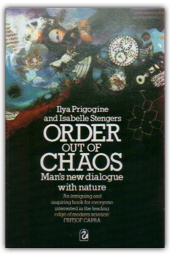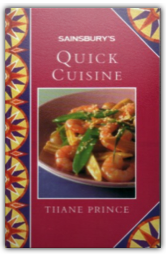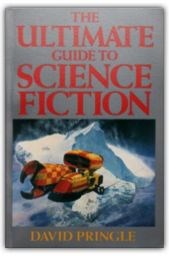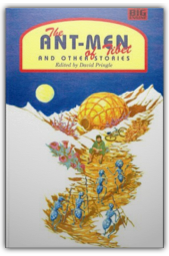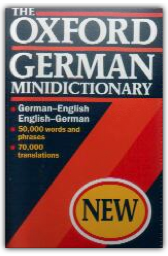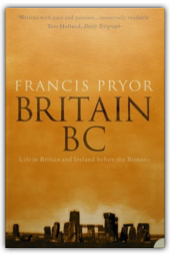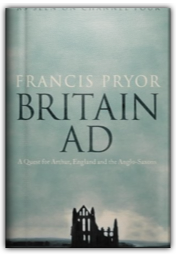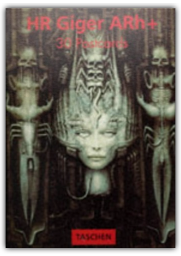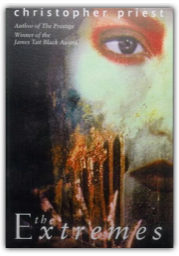 The Extremes
Christopher Priest
The Extremes
Christopher Priest
Dunblane, Port Arthur and Hungerford will be places known to many of us because of the apparently random mass shootings that have happened there in recent years. The Extremes is a book about such violence—it—it's horror, the sheer bad luck of being its victim, and the anguish it causes to those left behind. It is also a book about virtual reality, and is set in a not-so-distant future in which events of violence can be experienced by anyone prepared (or able) to pay for the privilege.
After her husband has been violently killed in the U.S., Teresa Simons returns to the land of her birth and visits Bulverton, a (fictional) town on the south coast of England which has recently been torn apart by a massacre. She discovers that the ExEx or Extreme Experience virtual reality equipment she used as an FBI trainee has become public "entertainment" put together from people's memories of specific events by vast international companies (and also by shareware programmers). As she becomes embroiled in researching past events in Bulverton, virtual and true realities intertwine with disturbing outcomes.
Priest writes a good yarn, marrying fantasy and horrific reality in a gripping and suspenseful tale. —Sandra Vogel
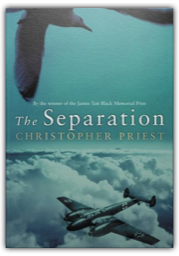 The Separation
Christopher Priest
The Separation
Christopher Priest
Christopher Priest excels at rethinking SF themes, lifting them above genre expectations into his own tricky, chilling, metaphysically dangerous territory. The Separation suggests an alternate history lying along a road not taken in World War II. But there are complications.
In 1999, history author Stuart Gratton is intrigued by a minor mystery of the European war which ended on 10 May 1941. The British-German armistice signed that month has had far-reaching consequences, including a resettlement of European Jews in Madagascar.
In 1936, the identical twin brothers Joe and Jack Sawyer win a rowing medal for Britain in the Berlin Olympics: it's presented to them by Rudolf Hess. The brothers are separated not only by a twin's fierce need "to be treated as a separate human being", but by sexual rivalry and even ideology. When war breaks out Jack becomes a gung-ho bomber pilot, Joe a conscientious objector. Still they're inescapably linked, and sometimes confused. Both suffer injuries and hauntingly similar ambulance journeys. Churchill writes a puzzled memo (later unearthed by Gratton) about the anomaly of a registered-pacifist Red Cross worker flying planes for Bomber Command. Hess has significant, eventually incompatible meetings with both men. Contradictions are everywhere.
As in his magical 1995 novel The Prestige Priest is fruitfully fascinated by the legerdemain of twins, doubles, impostors, symmetrical roles. Churchill's double briefly appears. So does the famous conspiracy theory that the Hess who flew to Britain with his quixotic peace deal wasn't the real Hess ring true? Clearly The Separation was impressively, extensively researched. Its evocations of bombing raids—from either side of the bomb sites—are memorable.
The unfolding story strands become increasingly disorienting and hallucinatory; the easy escape route of dismissing one strand as delusion is itself subtly undermined. The Separation is filled with a sense of the precariousness of history; of small events and choices with extraordinary consequences. —David Langford
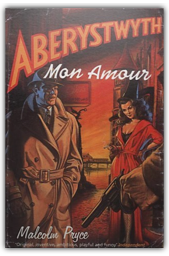 Aberystwyth Mon Amour
Malcolm Pryce
Aberystwyth Mon Amour
Malcolm Pryce
Malcolm Pryce's witty and scabrous comic thriller Aberystwyth Mon Amour is an original and diverting entry into the field of black-comedy writing—a genre which has enjoyed a long and healthy lineage, from Voltaire through Evelyn Waugh to the present day although lately it is pretty well the preserve of crime fiction. Making the unexciting Welsh town of Aberystwyth seem as fascinating and dangerous for his hardboiled 'tec as the mean streets of Raymond Chandler's Los Angeles is a daunting task but it's a trick Pryce pulls off with considerable aplomb.
Throughout Aberystwyth, schoolboys are vanishing without trace, and Louie Knight, the town's only private investigator, becomes involved when he has a visit from the exotic singer Myfanwy Montez (love the name!). She is the star of Wales' most outrageous nightclub, and is keen for Louie to track down her missing cousin, known as Evans the Boot. Aided by such eccentrics as philosopher-cum-ice-cream seller Sospan, Louie finds himself encountering a plot quite as labyrinthine as any which exercised Philip Marlowe. Surely Lovespoon, Grand Wizard of the Druids and the town's most powerful citizen, had a hand in the disappearances?
Nothing is quite as it seems in Pryce's outrageous and irreverent tale, which functions as a canny thriller as much as a wry parody. A good deal of the humour comes from relocating Chandler's sun-baked California locales to a parochial Welsh town, and all the clichés are ruthlessly exploded: Louie is visited in his seedy office by his sultry female client in time-honoured fashion. But it's the language, which leaps off the page, that really marks Pryce out as a stylist of no mean skill, and his bizarre refraction of Marlowe-speak is a real delight: By the time I reached the whelk stall the drizzle had finally made up its mind and turned into rain, driving forward hard off the sea and into my face. The booth was quiet: no-one there except a kid in charge—a pimply adolescent in a grubby white coat and a silly cardboard hat. I ordered the special and waited, as the youth kept a wary eye on me; trouble was never far away at this time of night. . —Barry Forshaw
|
 The Extremes
Christopher Priest
The Extremes
Christopher Priest
 The Separation
Christopher Priest
The Separation
Christopher Priest
 Aberystwyth Mon Amour
Malcolm Pryce
Aberystwyth Mon Amour
Malcolm Pryce
 Made with Delicious Library
Made with Delicious Library
